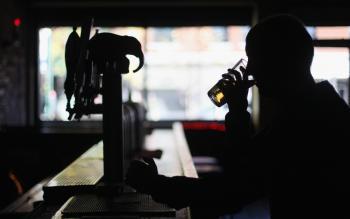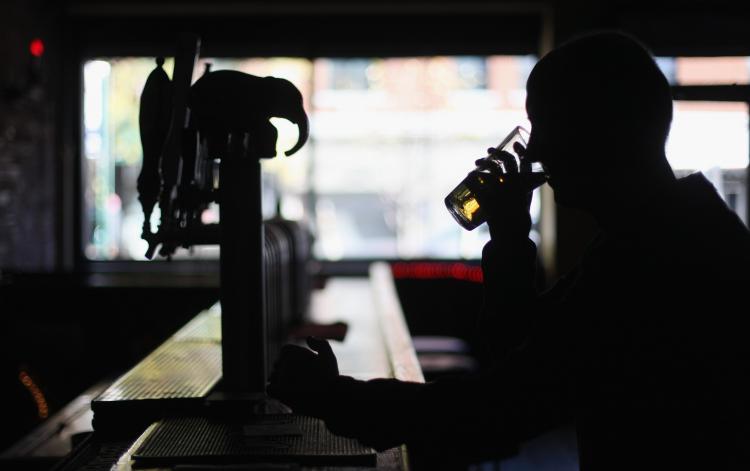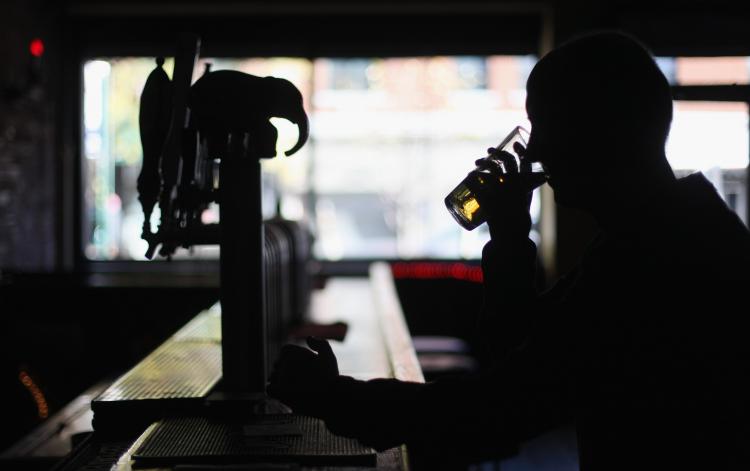Alcohol Does More Societal Damage Than Other Drugs, Researchers Say
Alcohol is more damaging to society overall than any other drug, says controversially dismissed Professor David Nutt.

A man drinks a beer in a Manhattan bar November 1, 2010 in New York City. A new study ranks alcohol as more dangerous than drugs like crack cocaine and heroin based on how destructive the substances are to society and the individual as a whole. Mario Tama/Getty Images
|Updated:





